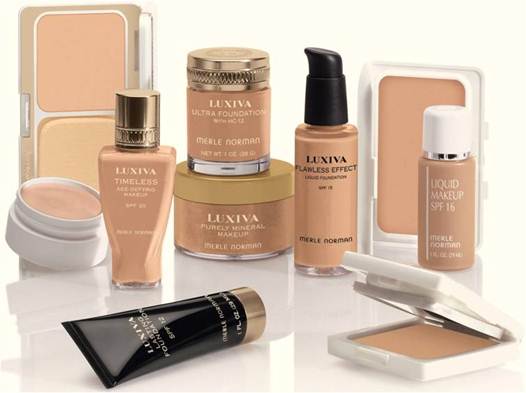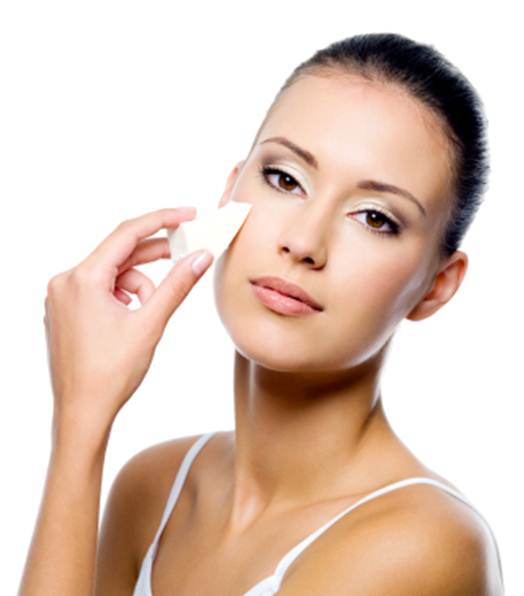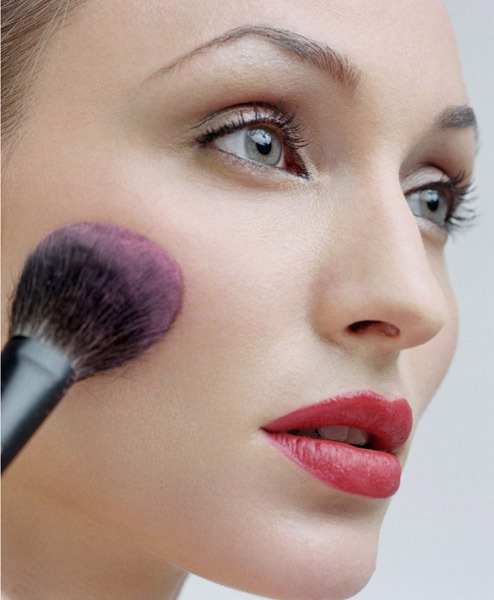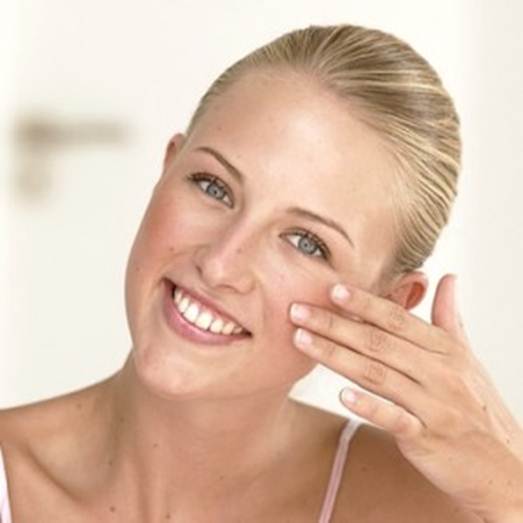Even beauty experts make mistakes. Here’s
how to put your best face forward.
1. Fixing your “flaws”
Applying concealer incorrectly and in the
wrong shade can make you look older, not younger.
It’s called the “reverse raccoon” and it’s
easy to fall into this trap. When you apply a concealer that’s lighter than
your skin tone to undereye circles, it actually emphasizes the area. “You’re
highlighting the very area you are trying to downplay,” says Riette van Tonder,
education executive for Clinique SA. “Always test concealer where you’ll be
wearing it before buying it. For correcting underete circles, use just one
shade lighter than your skin tone. For addressing raised pimples, choose the
same color as your skin, not lighter.”

It’s
called the “reverse raccoon” and it’s easy to fall into this trap
Hiding dark circles under your eyes and
hyperpigmentation spots can take years off your appreance, says Van Tonder.
But avoid using too much concealer; also
set it with a tiny amount of fine, loose mineral powder so that it doesn’t
settle in the lines. Avoid heavier compact powders over the concealer. For best
results, use both your fingers and a brush. For application, a brush gives more
precision, while a finger is great for blending. Pat the adges with your ring
finger – never rub.
Another fallacy is that you can use
concealer to cover up your fine lines and wrinkles. The normal foundation
formulas will actually settle in the creases, enhancing them as the day goes
on.
2. Foundation faux pas
Getting the shade and texture wrong can
make you look unnatural.
We’ve all done it. Bought a foundation that
wasn’t right for our skin tones, either a shade too light or a shade too dark.
Women usually go too dark for their complexions, says Estée Lauder’s national
make-up artist, Kirti Singh.
“The key to creating a natural look is
choosing a foundation that matches your skin tone,” she says. “When finding
your perfect match, always apply foundation to your jawline to ensure that it tones
and blends with your neck.

“The
key to creating a natural look is choosing a foundation that matches your skin
tone”
“There’s nothing worse than wearing a
foundation that’s too dark. If it’s a sun-kissed look that you want to achieve,
rather dust bronzer onto your cheekbones and jawline.”
Always test foundation in natural light,
rather than an artificially lighted store, advises Linda O’Connell, make-up
artist for Maybelline.
Van Tonder recommends this technique for
choosing the right shade: “Swatch three different shades closest to your
natural skin tone across the cheek. Don’t blend the lines. Step away from the
mirror and see from a distance which one disappears out of sight first. The
correct shade won’t leave a watermark line.”

Swatch
three different shades closest to your natural skin tone across the cheek.
It’s better to go one shade lighter, rather
than darker. If your skin is good, let your natural glow shine through.
Your foundation will look its best on
perfectly prepared skin, which means proper hydration, pore-minimising serums
and a primer to even our skin tone, advises Singh.
3. Forgoing toner
If your delete this post-cleaning step
because you think toner is too drying or harsg, you’re missing out on
extra-clean, hydrated skin.
Some skincare professional believe that
toner is an optional, non-essential step, unless one has oily skin. This trend
towards shunning toner is confirmed bu Dis-Chem owner Lynette Saltzman, who has
noticed a drop in sales of toners.

If
your delete this post-cleaning step because you think toner is too drying or
harsg, you’re missing out on extra-clean, hydrated skin.
“It seems that consumers are trying to save
money by cutting out toners,” comments Saltzman.
But toner belongs in a daily skincare
regime, says Nico Thirion, Johnson & Johnson SA’s national training
manager. “Toners have had a bad wrap because alcohol was frequently used in the
older type toners. As alcohol removes natural oils from the skin, it can have a
drying effect. There seems to be a move away from traditional toners to a new
type of skin refresher or freshener.”
Toners are important as preparation for the
nourishment and protection of treatment products to follow, such as serums and
moisturising cream.
Apply enough toner to leave your skin damp.
This makes it 10 minutes more permeable than dry skin, so it’ll better absorb
active ingredients in the treatment and prepair product you apply next.
4. Over-cleaning and exfoliating
You’re stripping your skin of the oils it
needs to function properly.
Overcleansing leads to dryness and
unbalanced skin pH, says Thirion. Using harsh exfoliators and strong cleaners
can compromise your skin’s ability to provide its own moisture needs.
“Fortunately, because of the advances in the way cleansers are manufactured
now, most cleansers are now pH balanced,” he says.

“Fortunately,
because of the advances in the way cleansers are manufactured now, most
cleansers are now pH balanced”
We think that by removing oil vigorously
from the skin, we’re “cleaning” it. In reality we’re making the problem worse,
encourage skin to work harder to replace it, thereby creating more oiliness.
Exfoliate twice a week, and choose the
appropriate product for your skin type. Younger skin responds well to
exfoliators or scrubs with micro-sized beads, while more mature skin will
benefit from fruit-enzyme exfoliators, which gently slough away dead cells.